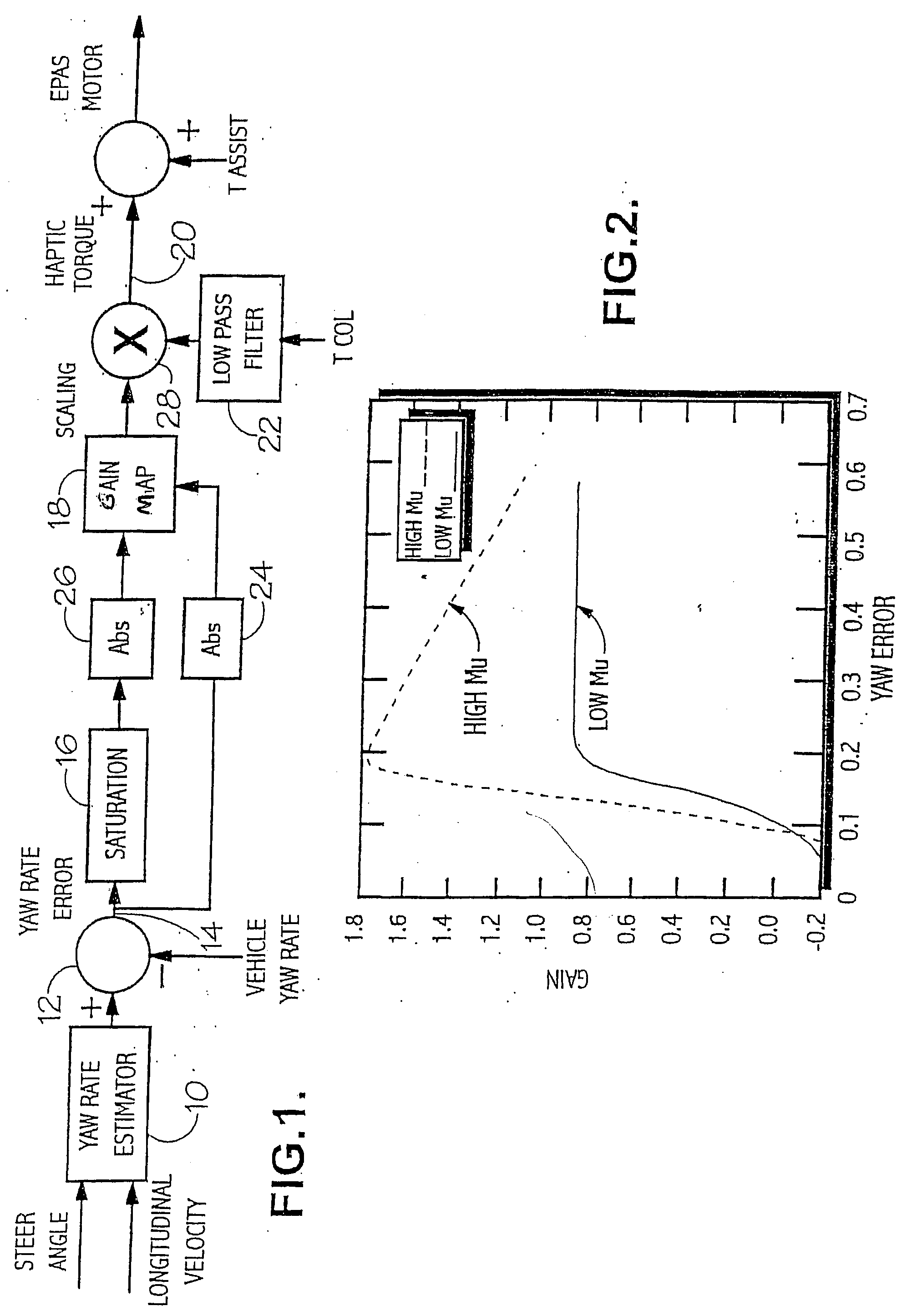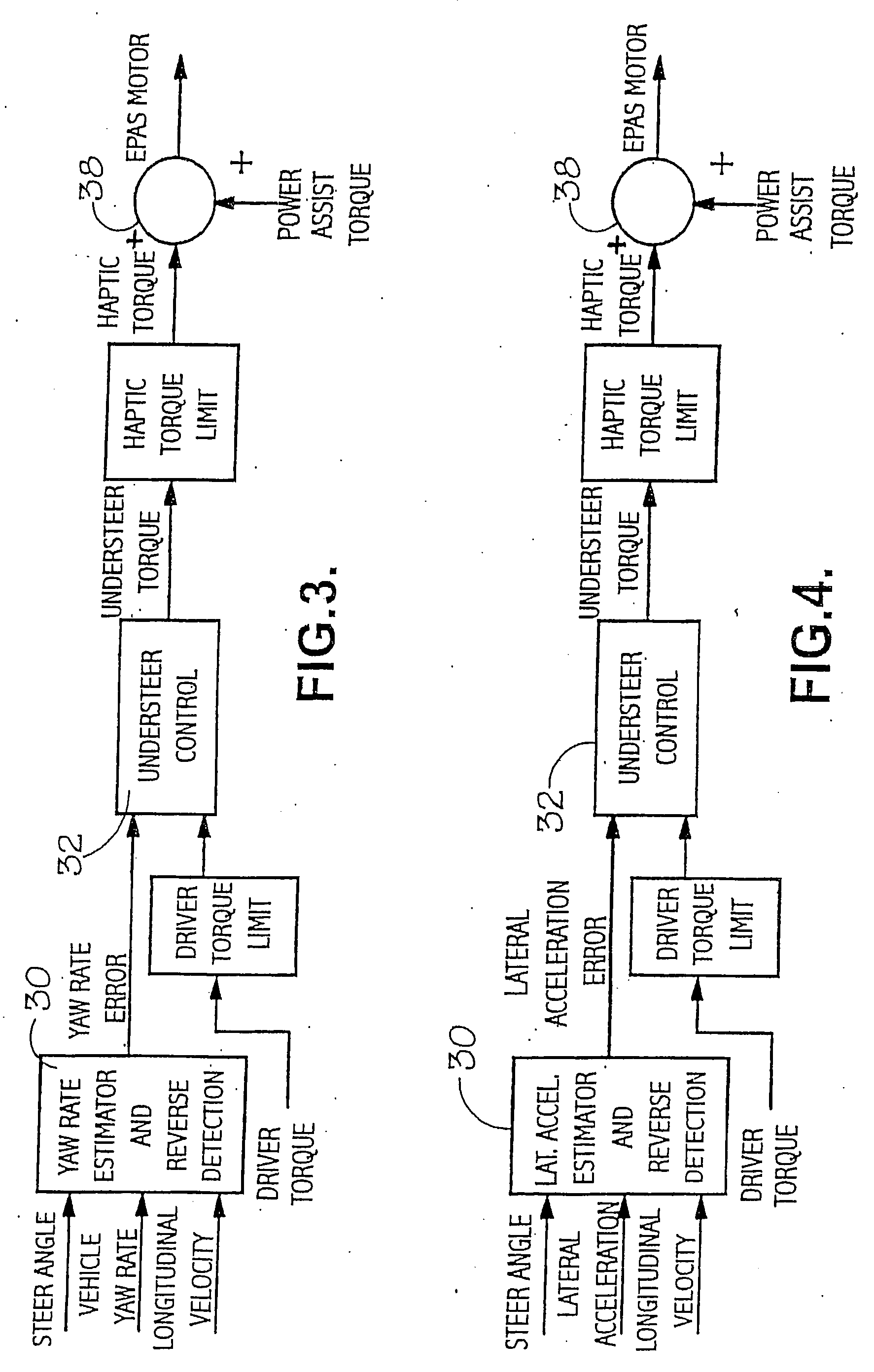Haptic controller for road vehicles
- Summary
- Abstract
- Description
- Claims
- Application Information
AI Technical Summary
Benefits of technology
Problems solved by technology
Method used
Image
Examples
Embodiment Construction
[0039] Referring first to FIG. 1, the vehicle steer angle and longitudinal velocity are input to element 10 where an estimate is established of the yaw rate demanded by the driver of the vehicle. The yaw rate estimation is based for example on the steady state understeer equation, expressed as: r^=Vxl(1+(Vx / Vch)2)δswGs
where Vx is the vehicle longitudinal velocity, l is the wheel base, Vch is the vehicle characteristic speed, δsw is the handwheel angle and Gs is the gain of the steering system from road wheels to handwheel. This estimated value is then passed through a first order low pass filter, tuned to give the estimate similar lag to the vehicle. Careful selection of the break point in this filter allows the point where the steering goes light, in relation to the loss of steer authority to be controlled.
[0040] The resulting estimated yaw rate is compared at 12 with a signal representative of the actual vehicle yaw rate, as measured by a Vehicle Stability Controller (VSC) or...
PUM
 Login to View More
Login to View More Abstract
Description
Claims
Application Information
 Login to View More
Login to View More - R&D
- Intellectual Property
- Life Sciences
- Materials
- Tech Scout
- Unparalleled Data Quality
- Higher Quality Content
- 60% Fewer Hallucinations
Browse by: Latest US Patents, China's latest patents, Technical Efficacy Thesaurus, Application Domain, Technology Topic, Popular Technical Reports.
© 2025 PatSnap. All rights reserved.Legal|Privacy policy|Modern Slavery Act Transparency Statement|Sitemap|About US| Contact US: help@patsnap.com



